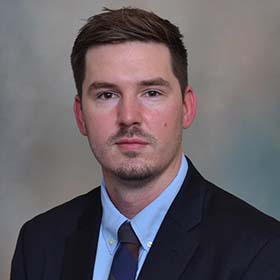
Recent Posts
Radiology
It is often the things you cannot see that are critical when making a diagnosis or treatment decision. Mayo Clinic Health System uses standard and advanced imaging tests to get a clear picture of your health and condition. Our locations are accredited by the American College of Radiology (ACR), which means they meet the highest standards of quality and safety.
Our radiology team has extensive training, so you can get the diagnostic testing and image-guided procedures you need close to home. Team members work to make your visit a positive experience, delivering professional and compassionate care throughout your imaging exam.
Find out more about our radiology services:
- Conditions and consultations
- Radiology services
- Radiology specialists
- Referrals
- FAQ
- Radiology locations near you
- Radiology specialists near you
Conditions and consultations
Getting the treatment you need begins with a diagnosis. Our fellowship-trained radiologists are experts at interpreting medical images to determine what is happening inside the body. In some cases, they perform image-guided procedures to treat conditions.
Your healthcare provider may request diagnostic imaging for several reasons. They may use it to:
- Detect internal injuries and bleeding
- Determine the location of a tumor, infection or blood clot
- Diagnose muscle and bone disorders, including bone tumors
- Guide diagnostic procedures, such as biopsy
- Identify injuries, such as bone fractures and torn ligaments
- Monitor the effectiveness of treatment and the progression of disease
- Screen for diseases and conditions, such as cancer, heart disease, lung nodules and liver masses
Our radiology team knows that when you are comfortable, they can get the imaging necessary to evaluate your health. They focus on your experience, using pillows and other immobilization techniques to help you stay still for the imaging procedure.
Radiology services
Some of the most common diagnostic imaging services and image-guided procedures we offer include:
- Bone density scan
- Computed tomography (CT) scan
- Fluoroscopy
- Interventional radiology
- Mammography
- Magnetic resonance imaging (MRI)
- Nuclear medicine
- Positron emission tomography (PET) scan
- Theranostics
- Ultrasound
- X-ray
Radiology specialists
Our radiology team has the expertise needed to operate and interpret advanced imaging technology. Team members prioritize patient safety and monitor you every step of the way.
Our radiology specialists include:
- Radiologists
- Radiology technologists
- Advanced practice providers
- Nurses
- Medical physicists
- Medical sonographers
Referrals
A referral is required for diagnostic imaging and image-guided procedures. Talk with your healthcare provider to determine if these services are right for you and to arrange a referral.
If you are a provider, you can refer a patient online, by phone or by fax.
FAQ
What is the process for a young child needing radiology testing?
If your child is having imaging tests, our goal is to keep them comfortable and safe while getting the images needed. The radiology team uses harmless immobilization techniques to help your child stay still, so the testing will not need to be repeated.
A caregiver may be allowed to stay with the child during the test. If you are in the room during an X-ray, you will be asked to wear a lead apron to shield you from unnecessary exposure.
Does insurance cover radiology tests?
Health insurance varies. However, many health plans provide coverage for medically necessary imaging. Contact your insurance provider for coverage details. Our Patient Account Services team is happy to answer any questions and help you navigate billing and insurance.
We serve patients in difficult financial circumstances and offer financial assistance to those who have an established need to receive medically necessary services.





